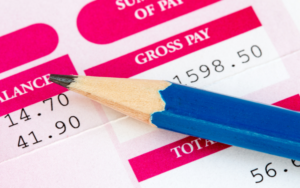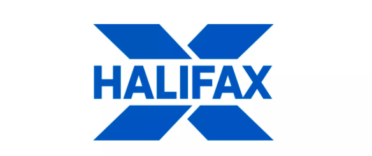 In this article, we explain how many payslips you need to support your application for a mortgage, why you need to prove your income, how this fits with your mortgage application and how a lender will assess your eligibility for the amount of mortgage that you need.
In this article, we explain how many payslips you need to support your application for a mortgage, why you need to prove your income, how this fits with your mortgage application and how a lender will assess your eligibility for the amount of mortgage that you need.
Proof of income for a mortgage
There are several documents that you will need to provide to support your mortgage application. The most important is the proof of income required to meet your lender's mortgage qualifying criteria. The type of evidence needed will depend on your employment status and is likely to be different depending on whether you are employed, self-employed, a director of a limited company or a contractor.
In this article, we will explain what is required by those who are employed and are paid their income via the pay-as-you-earn (PAYE) method. If you are a borrower who is paid as an employee, you will need to provide payslips to prove your income so that the mortgage lender is satisfied that you meet the affordability criteria for the amount of mortgage loan you need.
If you earn your income through dividends or any other means, you will usually be required to prove your income through 2 years' worth of accounts or tax returns. Some lenders may request evidence over a longer period so it is best to check with them directly.
Instant free mortgage advice
Our partner Habito is a leading online mortgage broker and will recommend the best mortgage for you
- Habito checks over 20,000 mortgages from 90 mortgage lenders
- 5-star rating on Trustpilot from over 5,000 customer reviews
- Can register online
How many payslips are needed for a mortgage?
A lender will normally require three payslips if you are employed and paid every month. If you are paid weekly or otherwise, you will usually need to provide payslips that cover 3 months of income.
You may also be required to provide a P60 earnings statement over 1, 2 or 3 years, depending on the mortgage lender. You may not have the most recent P60 statement if it is yet to be issued, which is normally acceptable with most lenders and so shouldn't delay your mortgage application.
Some lenders will also request copies of bank statements so that they can see your wages going in and also work out what your regular expenditure is. This will demonstrate how much disposable income you have each month and whether your new mortgage payment is affordable.
What happens if I don't have enough payslips to support my mortgage application?
You may be able to provide an employment contract that details your salary if you do not have a sufficient number of payslips to prove your income.
Each lender will have its own rules on what it deems an acceptable proof of income so it is best to check with your particular lender. In most cases, lenders will want to establish that you are on a fixed-term contract and that you have passed your probationary period.
Can I use copies of documents for my mortgage application?
It depends on your lender, as each lender will have its own set of requirements. However, it is usually acceptable to provide printed payslips from electronic copies or PDF downloads of your payslip if you receive it electronically. Pictures or photocopies of payslips are seldom acceptable but you should check with your mortgage lender.
Why do you need to provide proof of income for a mortgage?
Lenders are required to check that the mortgage loan and payments are affordable and regulations in the mortgage market set out affordability parameters that lenders must meet. Lenders must take reasonable steps to ensure the borrower does not take on unmanageable debt and requesting several months' payslips helps provide evidence of earnings in order to meet the regulatory requirements.
Most lenders set limits around the multiple of your income that you can take as a mortgage loan and it is not sufficient for you to simply declare your income. Essentially, these measures are put in place to protect borrowers from falling into financial difficulties and even defaulting on mortgage payments in the future. Your lender will also check your credit report to ensure you keep up with your regular payments such as utility bills and credit card payments and that you make these on time. The credit report will also show how much credit you have elsewhere, including credit cards, loans, overdrafts and store cards.
How to apply for a mortgage
When you apply for a mortgage you'll need to provide details about your income, expenditure as well as any other financial commitments you may have. It is a daunting and challenging process for some, especially as you want to get things right so that your application doesn't get declined. However, it can be made simple and manageable with the help of a mortgage broker. Mortgage brokers can help you to search for the best mortgage deals in the market as well as support you through the mortgage application process.
If you have a mortgage broker, then you can seek support with your mortgage application through them. If you do not, you can source a mortgage broker in your local area using the professional directory services of VouchedFor*. The mortgage broker will liaise between you and the mortgage lender, simplifying the application process wherever possible. Mortgage advice can be invaluable and ensures that you meet the lender's qualifying criteria.
If a link has an * beside it, this means that it is an affiliated link. If you go via the link, Money to the Masses may receive a small fee which helps keep Money to the Masses free to use. The following link can be used if you do not wish to help Money to the Masses or take advantage of any exclusive offers - Vouchedfor.





